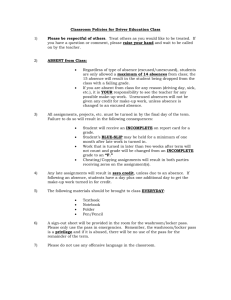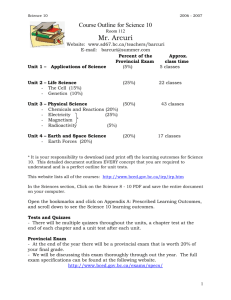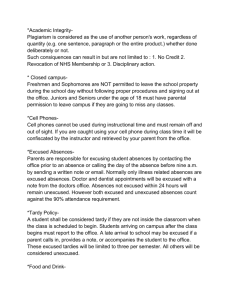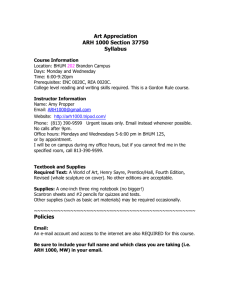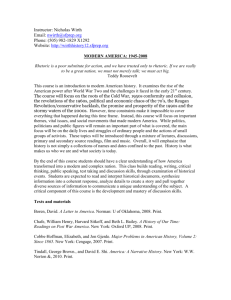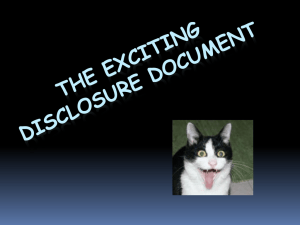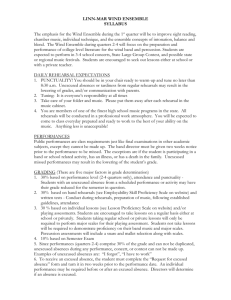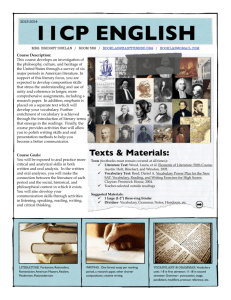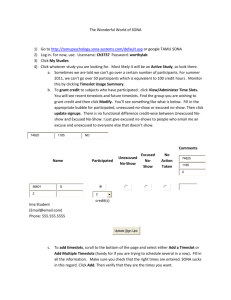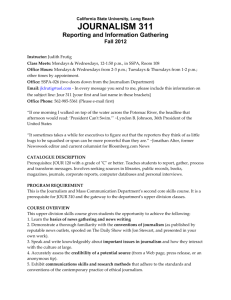Physics is considered the most fundamental experimental science
advertisement
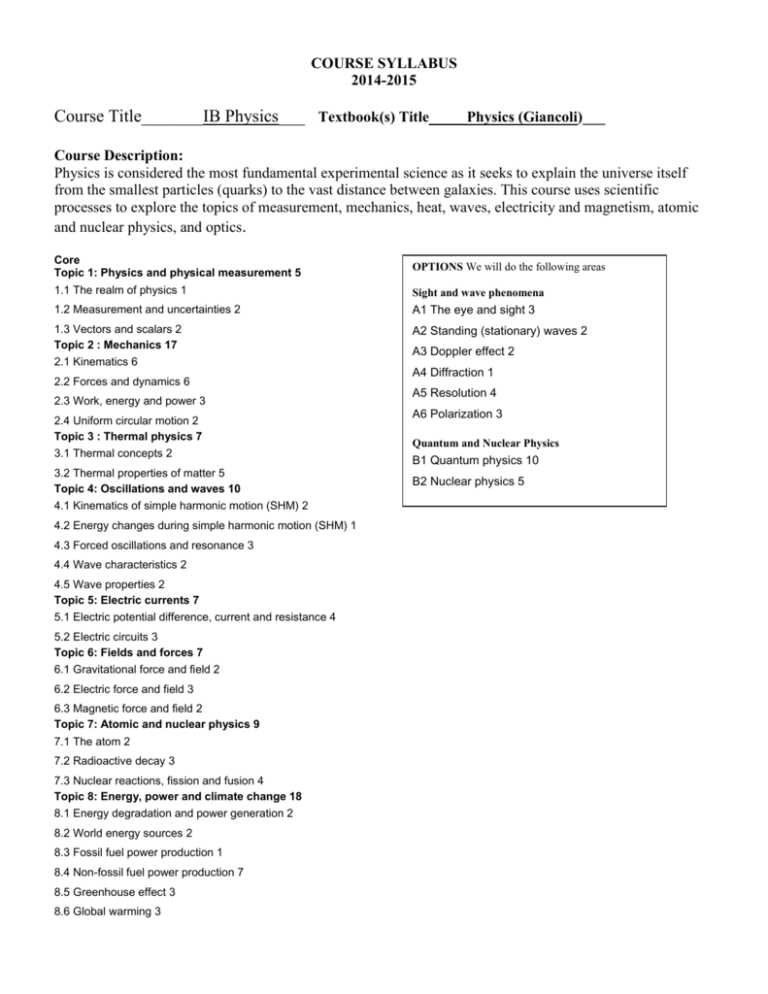
COURSE SYLLABUS
2014-2015
Course Title_______IB Physics___ Textbook(s) Title_____Physics (Giancoli)___
Course Description:
Physics is considered the most fundamental experimental science as it seeks to explain the universe itself
from the smallest particles (quarks) to the vast distance between galaxies. This course uses scientific
processes to explore the topics of measurement, mechanics, heat, waves, electricity and magnetism, atomic
and nuclear physics, and optics.
Core
Topic 1: Physics and physical measurement 5
OPTIONS We will do the following areas
1.1 The realm of physics 1
Sight and wave phenomena
1.2 Measurement and uncertainties 2
A1 The eye and sight 3
1.3 Vectors and scalars 2
Topic 2 : Mechanics 17
A2 Standing (stationary) waves 2
2.1 Kinematics 6
2.2 Forces and dynamics 6
2.3 Work, energy and power 3
2.4 Uniform circular motion 2
Topic 3 : Thermal physics 7
3.1 Thermal concepts 2
3.2 Thermal properties of matter 5
Topic 4: Oscillations and waves 10
4.1 Kinematics of simple harmonic motion (SHM) 2
4.2 Energy changes during simple harmonic motion (SHM) 1
4.3 Forced oscillations and resonance 3
4.4 Wave characteristics 2
4.5 Wave properties 2
Topic 5: Electric currents 7
5.1 Electric potential difference, current and resistance 4
5.2 Electric circuits 3
Topic 6: Fields and forces 7
6.1 Gravitational force and field 2
6.2 Electric force and field 3
6.3 Magnetic force and field 2
Topic 7: Atomic and nuclear physics 9
7.1 The atom 2
7.2 Radioactive decay 3
7.3 Nuclear reactions, fission and fusion 4
Topic 8: Energy, power and climate change 18
8.1 Energy degradation and power generation 2
8.2 World energy sources 2
8.3 Fossil fuel power production 1
8.4 Non-fossil fuel power production 7
8.5 Greenhouse effect 3
8.6 Global warming 3
A3 Doppler effect 2
A4 Diffraction 1
A5 Resolution 4
A6 Polarization 3
Quantum and Nuclear Physics
B1 Quantum physics 10
B2 Nuclear physics 5
COURSE EXPECTATIONS
Grading
A) Homework and quizzes – There will be homework problems assigned most nights. The next
day, these assignments may be 1) collected and graded, 2) exchanged and graded, 3) checked for
completion of assignment, or 4) corrected by the students themselves and no grade taken. From
time to time, pop quizzes will then be used to check for understanding.
B) Laboratory work
During this IB physics course you will perform a number of experiments. You must keep a record of ALL
the experiments which you perform in a folder or three ring binder. For most of the experiments you
will be required to present a full, detailed report, which will be graded. The grades will form part of your final
result (remember, a significant percentage of your final result will be based on your practical abilities).
1.
Title
The title must state clearly the aim of the experiment. It must tell the reader what you are trying to prove or
measure. For example, "Ohm's Law" is not a suitable title for an experiment report, whereas, "Experiment to
verify Ohm's Law" is a suitable title.
2.
Introduction and Method (Design)
The introduction should include defining the problem or research question and selecting variables. If the
experiment is designed to verify a law, state the law in the introduction.
The method section should give enough detail to enable another experimenter to repeat the experiment to see if
he/she agrees with your results/conclusions. The method should include
- a description of the apparatus used In most cases a labeled diagram is useful. Every electrical
experiment report must include a circuit diagram.
- designing a method for the control of variables
- designing a method for the collection of relevant data
3.
Results (Data collection and Processing)
- Raw data should be collected and recorded appropriately with proper significant digits, units, and an indication
of uncertainty when necessary. The presentation of this data should be clear and allow for easy interpretation.
(Tables usually work best.)
- Next the raw data needs to be processed. Show calculations and present findings clearly (with sig. fig. units,
and uncertainties where appropriate) Any graphs would also belong here.
4.
Conclusion and evaluation (Conclusion and evaluation)
Every experiment report must have a conclusion based on an interpretation of your results. If your aim was
to verify a law, state whether you have verified the law or not. Evaluate both the results and your procedure
mentioning errors or weaknesses in the method. Then offer realistic suggestions to improve the
experiment.
I.
C) Tests – tests occur approximately once per chapter (or 2) and will comprise a large portion of the
nine-weeks grade. For the most part, the format will follow the IB scheme.
D) Other – Throughout the course, there may be other required projects connected to the IB
Philosophy as well as Physics content
Classroom expectations and rules
A) Students will arrive on time and be prepared to work.
B) We will treat each other with respect. This includes a learning atmosphere free from the
distractions of other students.
C) In the setting of a laboratory classroom, students must go beyond respecting others. They must
understand and follow the rules for laboratory safety for their own welfare, as well as the welfare of
others. {These rules will be presented later and will be included in the prelab.)
Grades on the report card shall be equivalent to the following percentages: A = 90 – 100 B = 80 – 89 C =
70 – 79 D = 60 – 69 F = 59 and below
All missing assignments shall be marked as a zero in the Skyward Gradebook (Unexcused/Excused).
A student, who is present but did not submit an assignment, shall be provided the opportunity to
make up the assignment. The earned grade on the missing assignment will lose one letter grade per
day until that assignment turns into an “F”. Assignment is considered late if not handed in when due
in class.
Homework assignments will account for no more than 15% of the total grade.
The following guidelines shall apply to students with excused absences, suspensions and unexcused
absences:
Excused Absence
Excused students will be given a zero and the assignment will be labeled as missing. The student will
be allowed two (2) days for every one day of excused absence to submit missing assignments. A
student who completes the assignments within the time guidelines shall receive full credit. The grade
would then replace the zero. Work not submitted would still be given a zero.
Unexcused Absence
Students with an unexcused absence, including suspensions, shall be given a zero. Students will be
allowed one (1) day for every day of unexcused absence, in-school suspension or out-of-school
suspension. A student who completes the assignment within the time guidelines shall receive full
credit and that grade would replace the zero given. On the tenth (10) day of absence from any course,
the student would automatically be given an “F”, in that course, for the semester.
